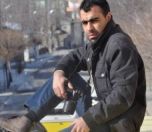Click here to read the article in Turkish / Haberin Türkçesi için buraya tıklayın.
In the congress held in memory of Prof. Dr. Server Tanilli and Prof. Dr. Bülent Tanör, 67th year of the Universal Declaration of Human Rights at Marmara University Faculty of Law Hukuk, problems of freedom of expression within the political context in Turkey have been discussed. The congress has been held with contributions from Marmara University Faculty of Law, Turkish Criminal Law Foundation, Initiative Against Thought Crime, University Faculty Members Foundation, İstanbul Bar Association and Constitutional Law Studies Foundation (ANAYASADER).
In the first session of the congress, Prof. İbrahim Kabaoğlu, Prof. Ozan Erözden and Prof. Niyazi Öktem have made presentations about the historical adventures of freedom of expression and the legal significance of the Universal Declaration of Human Rights
Doğru: Are we in the situation of having to choose between living and making use freedom of expression and dying?
In the session under his the presidency Prof. Osman Doğru, emphasising on the significance of deceased Attorney Tahir Elçi in the struggle for Human Rights in Turkey, asked the following question:
“Are we indeed in the situation of having to choose between living and making use of freedom of expression and dying in Turkey today?”
Sınar: Punishments are being used to silence the opponents.
The most up-to-date topic of the congress was the discussion of “defaming the President” in a legal and political content.
Asst. Prof. Dr. Hasan Sınar, lecturer at Kemerburgaz University Faculty of Law has explained the historical development of the “crime of defaming the county’s president” at his opening speech which he carried on representing the relation of Article 299 of Turkish Criminal Law (TCK) with principles of democracy and criminal law on comparative judicial examples as follows:
“In Continental Europe, there is an attend to not recognizing ‘defaming the country’s president’ as a crime.
“The most significant point in this sense is to differentiate between expressions which should be subsumed under the Article 229 of TCK and those which should be considered political criticism.
“At this point, analysing the decisions of the European Court of Human Rights (ECtHR) can be beneficial. The court has chosen to be on the side of the weak and victimized and thus aimed at protecting the freedom of expression in its decisions from past to today.
“ECtHR utters that politicians should confront heavy criticism. Yet in Turkey the situation is grave. In the cases regarding defaming the president, criminal law is being applied as a first resort instead of a last resort in Turkey.
“In states which have not come through their democratic transformation yet, this term and punishment methods are being used to silence the opponents."
Tansen: Individuals are defenseless before the state.
Attorney Ayşegül Tansen from İstanbul Bar Association Human Rights Center has expressed that the president was irresponsible and thus the individuals were powerless against state’s mechanisms.
Uygun: The elected should feel on the edge of the knife.
Prof. Dr. Oktay Uygun interpreting the “crime of defaming the country’s president” in accordance with the European Convention on Human Rights (ECHR), has mentioned that democracy could not exist in societies where there is no freedom of expression and has added:
“Criticising the government is a civic duty, without which democracy can not exist. The ones we have elected should feel on the edge of a knife, that way democracy can be realized.
“It is unacceptable that politicians immediately apply to the threat with punishment for criticism targeting themselves.
“In Europe, there ‘the crime of defaming the country’s president’ is tried to be revoked or is not being applied, Yet for the cases where it is applied, the punishment is usually determined as a punitive fine.
“Also in the past years humor magazines used to draw caricatures criticising then Presidents yet have not experienced arrests nor punitive punishments. Symbolic trials were used to be opened yet the current situation is beyond compare.
ECHR evaluates defamations, severe charges and similar criticism within the scope of the freedom of expression under the condition that these are grounded.
Yılmaz: Defamation charges cause Sacralization.
Asst. Prof. Dr. Yılmaz has expressed that the crime of defaming the president causes sacralization and privileges and stated: “These practices have turned in to be a political tool and this is not compatible with the constitutional order and democracy.”
İlkiz: Law should be compatible with the human nature.
Attorney İlkiz has noted in his speech that the crime of defaming the president should not be subsumed under criminal law and added: “Law should be compatible with the human nature, I have to be able to express my opinions freely.
“The judicial system has collapsed. Legal reforms have turned into untrustworthy commitments. Even the judicial system itself has no more faith in justice.”(Çİ/EKN/DG)







132.jpg)